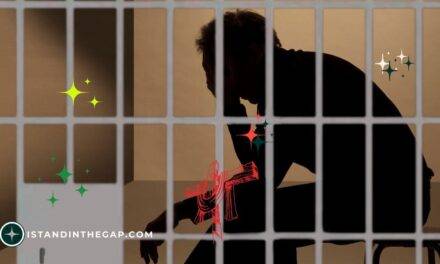Nigeria Christian Attack: Another devastating wave of violence has struck Nigeria’s Christian community, leaving families shattered and communities in mourning. Gunmen launched a coordinated attack, resulting in the deaths of 15 innocent people whose only crime was their faith.
This latest Nigerian Christian attack adds to the growing toll of religious persecution that has plagued the West African nation for years.
The targeted nature of this assault sends chills through Nigeria’s already vulnerable Christian population. Eyewitness accounts describe scenes of terror as armed militants stormed into the community during evening hours, when families were gathered together. The attackers showed no mercy, firing indiscriminately at civilians who had no means of defense.
This tragedy represents far more than just statistics, for behind each number is a family torn apart, children left orphaned, and a community grappling with unimaginable loss.
As Nigeria continues to struggle with religious violence, the international community watches with growing concern about the safety of minorities in Africa’s most populous nation.
Nigeria Christian Attack: Key Takeaway
- Fifteen Christians died in a targeted religious attack in Nigeria, highlighting the ongoing persecution faced by Christian communities.
Details of the Deadly Nigeria Christian Attack
The assault occurred during the evening hours when most families were at home preparing for dinner. Witnesses report that the attackers arrived on motorcycles, a common method of transportation used by militant groups operating in the region.
The gunmen moved systematically through the community, targeting homes and gathering places known to house Christian families.
Local security forces arrived at the scene hours after the attack began, but by then, the perpetrators had already fled into the surrounding countryside.
The delayed response has raised questions about the government’s ability to protect vulnerable religious minorities in remote areas.
Survivors Share Their Stories
Those who survived the attack describe moments of pure terror. “I heard gunshots and screaming,” said one survivor who wished to remain anonymous for safety reasons.
We hid in our neighbor’s cellar until morning, praying they wouldn’t find us.
Many families lost everything – not just loved ones, but also their homes and possessions that were destroyed during the raid.
The psychological trauma extends beyond the immediate victims. Children who witnessed the violence now struggle with nightmares and fear.
Community leaders are calling for counseling services and trauma support, but resources remain scarce in these rural areas.
Pattern of Persecution Against Nigerian Christians
This Nigeria Christian attack fits into a disturbing pattern of violence that has escalated over the past decade. Religious persecution in Nigeria has reached alarming levels, with Christian communities bearing the brunt of targeted violence from various extremist groups.
The attackers often employ similar tactics: arriving on motorcycles, targeting rural communities with limited security presence, and focusing on areas known to have significant Christian populations.
These coordinated efforts suggest a level of planning and intelligence gathering that goes beyond random violence.
Government Response and Security Challenges
Nigerian authorities have condemned the attack and promised to bring the perpetrators to justice. However, critics argue that the government’s response has been inadequate given the scale and frequency of these incidents.
The security apparatus appears stretched thin across a country dealing with multiple insurgencies and criminal organizations.
The president of Nigeria, Muhammadu Buhari, issued a statement calling for calm and promising increased security measures in affected regions.
Yet many community leaders question whether these promises will translate into concrete action that actually protects vulnerable populations.
International Community Responds to Nigeria Christian Attack
The international response has been swift, with various human rights organizations condemning the violence. International Christian Concern called for immediate action to protect Nigeria’s Christian minority, while Open Doors USA highlighted this attack as part of the broader crisis facing Christians worldwide.
Several Western governments have expressed concern about the deteriorating security situation in Nigeria.
The United States Commission on International Religious Freedom has been particularly vocal about the need for the Nigerian government to take decisive action against religious persecution.
However, diplomatic statements and expressions of concern have done little to prevent these attacks from continuing.
Advocacy groups are pushing for more concrete measures, including targeted sanctions and increased humanitarian aid for affected communities.
Implications of Ongoing Religious Violence
Negative Impacts
The continued targeting of Christians in Nigeria has far-reaching consequences that extend beyond the immediate victims. Mass displacement has become common, with entire communities abandoning their ancestral homes to seek safety in urban areas or other regions.
This internal migration strains resources in receiving communities and disrupts traditional agricultural practices that many families depend on for survival.
Economic development suffers significantly in areas plagued by religious violence. Businesses close, schools shut down, and healthcare services become inaccessible.
The cycle of poverty deepens as communities lose their productive capacity and become dependent on humanitarian aid.
Perhaps most troubling is the erosion of trust between different religious and ethnic groups. Decades of coexistence are being undone by the actions of extremist groups, creating deep social divisions that will take generations to heal.
Potential Benefits and Positive Responses
Despite the tragedy, these incidents sometimes galvanize international attention and support for Nigeria’s persecuted communities. Increased media coverage brings awareness to a crisis that might otherwise be ignored by the global community.
Local communities often display remarkable resilience and unity in the face of adversity. Interfaith dialogue initiatives have emerged in some areas, with moderate religious leaders from different backgrounds working together to promote peace and understanding.
International humanitarian organizations have expanded their presence in Nigeria, providing essential services like medical care, education, and trauma counseling to affected populations.
These efforts, while insufficient to address the root causes, do provide crucial support for survivors and vulnerable communities.
Conclusion
The latest Nigerian Christian attack serves as a stark reminder that religious freedom remains under severe threat in many parts of the world. The loss of 15 innocent lives is not just a Nigerian tragedy buts a human tragedy that demands global attention and action.
As we remember the victims and support the survivors, we must also acknowledge that words of condemnation are not enough. Concrete steps must be taken to protect vulnerable communities, hold perpetrators accountable, and address the root causes of religious extremism.
The path forward requires sustained commitment from the Nigerian government, international partners, and civil society organizations working together to build a more peaceful and inclusive society where all citizens can practice their faith without fear.
Frequently Asked Questions
What caused this latest attack on Christians in Nigeria?
- While the specific motives are still under investigation, the attack appears to be part of an ongoing pattern of religious persecution targeting Christian communities in Nigeria. Extremist groups have increasingly targeted religious minorities as part of broader sectarian conflicts.
How many Christians have been killed in Nigeria this year?
- Exact numbers vary depending on the source, but human rights organizations estimate that hundreds of Christians have been killed in Nigeria in recent years through targeted attacks, with thousands more displaced from their homes.
What is the Nigerian government doing to protect Christians?
- The government has promised increased security measures and has condemned the attacks. However, critics argue that the response has been inadequate given the scale and frequency of these incidents affecting Christian communities.
Are there other religious groups being targeted in Nigeria?
- While Christians have faced significant persecution, other religious and ethnic minorities have also experienced violence. However, several international monitoring organizations have noted that Christians appear to be disproportionately targeted in many regions.
How can the international community help Nigerian Christians?
- International support can include diplomatic pressure on the Nigerian government, humanitarian aid for displaced communities, funding for security improvements, and support for interfaith dialogue initiatives that promote peace and reconciliation.
About Open Doors USA
Open Doors USA is a non-profit organization dedicated to supporting persecuted Christians worldwide. Founded in 1955, the organization works in over 60 countries, providing Bibles, training, and practical support to Christians facing persecution for their faith.
Open Doors publishes the annual World Watch List, which ranks countries where Christians face the most severe persecution, and Nigeria has consistently ranked among the most dangerous countries for Christians in recent years.
Biography of President Muhammadu Buhari
Muhammadu Buhari served as Nigeria’s President from 2015 to 2023 and previously ruled as military head of state from 1983 to 1985. Born in 1942 in Daura, Katsina State, Buhari is a retired military general who came to power promising to tackle corruption, insecurity, and economic challenges.
During his presidency, Nigeria continued to face significant security challenges, including religious violence, Boko Haram insurgency, and banditry.
Critics often accused his administration of failing to adequately protect Christian communities and other vulnerable populations from targeted attacks.
Original article source: Premier Christian News


















Aww so sad, may God protect their soul. Even though death my come but not such a way. May console the family who Lost this wonderful Christians. God be with them and strengthen them.